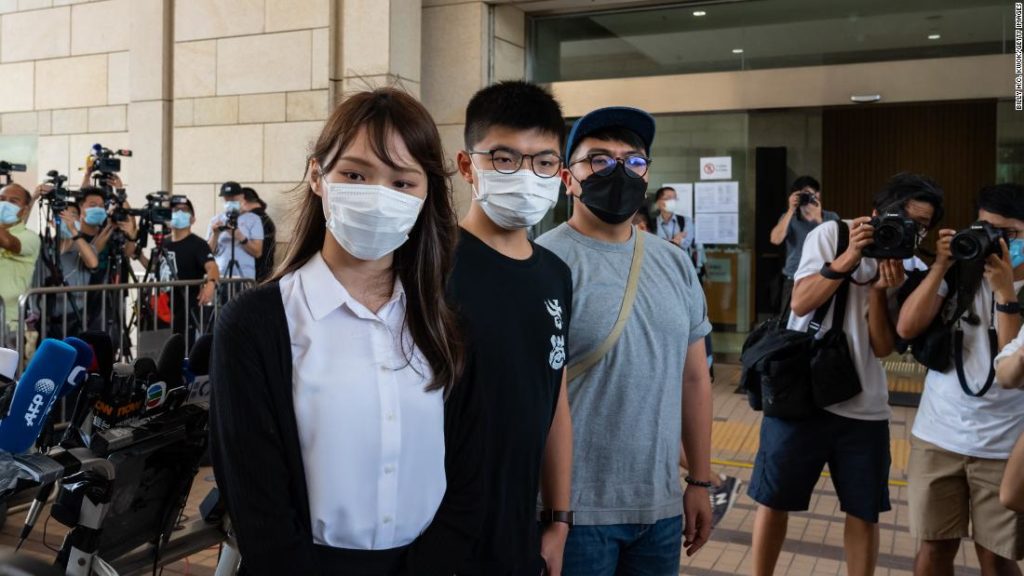All the while, as members of the opposition are picked off one-by-one, the likelihood of them being replaced by new blood is shrinking, as the spaces for cultivating new talent shrink and the cost of getting involved in politics rises ever higher.
It was the first time Chow has been jailed, and she sobbed as the sentence was read out. Both Lam and Wong have been to prison before, and dragged before court even more often.
A day later, another iconic opposition figure, Jimmy Lai — the septuagenarian founder of pro-democracy tabloid Apple Daily — was denied bail after an initial hearing into a fraud case. He will remain behind bars until the next trial date in April.
A new reality
In the past, yesterday’s sentences might have raised questions over the high-profile trio’s political prospects: under Hong Kong law, any prison term greater than three months results in a five-year ban on standing for office.
The law, along with broadly applied coronavirus gathering restrictions, has effectively stifled the protest movement: Hong Kong has not seen anything like the level of demonstrations that rocked the city throughout 2019. The election bans, expulsions from the legislature, and finally the mass resignation of lawmakers have fully curtailed a body that was already struggling to provide any real check on government.
No breeding ground for opposition
The moves by Beijing this year threaten not only to curtail existing opposition, but prevent future figures from coming forward or gaining any support.
Agnes Chow and Joshua Wong did not come out of nowhere. Both started as teenage activists, taking part in, and later leading, street protests and mass demonstrations, before moving more directly into politics.
This helped make them international icons, but also a target for prosecution — and already last year, the movement had switched to a more fluid, leaderless system, in part to avoid having organizers easily picked off.
While some figures did emerge from the 2019 unrest, with the legislature apparently cut off as an avenue for dissent, they lose both a vital source of funding and a platform for greater influence and prominence, both in Hong Kong and abroad.
“What worries the CCP is not the veto Joshua Wong has if he is elected as a LegCo member but his ability to speak to the international community in the capacity of a LegCo member,” Li said. “The CCP worries that people give us the mandate which we will use to unite more people and strengthen the force of resistance.”
“The incoming Biden administration must not only remain critical of the (Chinese Communist) regime but also have the courage to foster a new China policy that prioritizes human rights over other interests,” they wrote. “Hong Kong is at the front lines of the resistance against Beijing’s authoritarianism; what happens there should matter to anyone anywhere who cares about the future of freedom.”
But Law and Chow only have such a platform because of their previous work in Hong Kong itself. Unknown protesters are unlikely to get such treatment — and even sympathetic foreign governments and politicians will be cautious of meeting with those who cannot show evidence of any real constituency.
By moving hard against them now, Beijing may hope that it not only stifles their ability to speak out, but prevents anyone coming forward to replace them.
CNN’s Eric Cheung and Jadyn Sham contributed reporting.
You may also like
-
Afghanistan: Civilian casualties hit record high amid US withdrawal, UN says
-
How Taiwan is trying to defend against a cyber ‘World War III’
-
Pandemic travel news this week: Quarantine escapes and airplane disguises
-
Why would anyone trust Brexit Britain again?
-
Black fungus: A second crisis is killing survivors of India’s worst Covid wave

